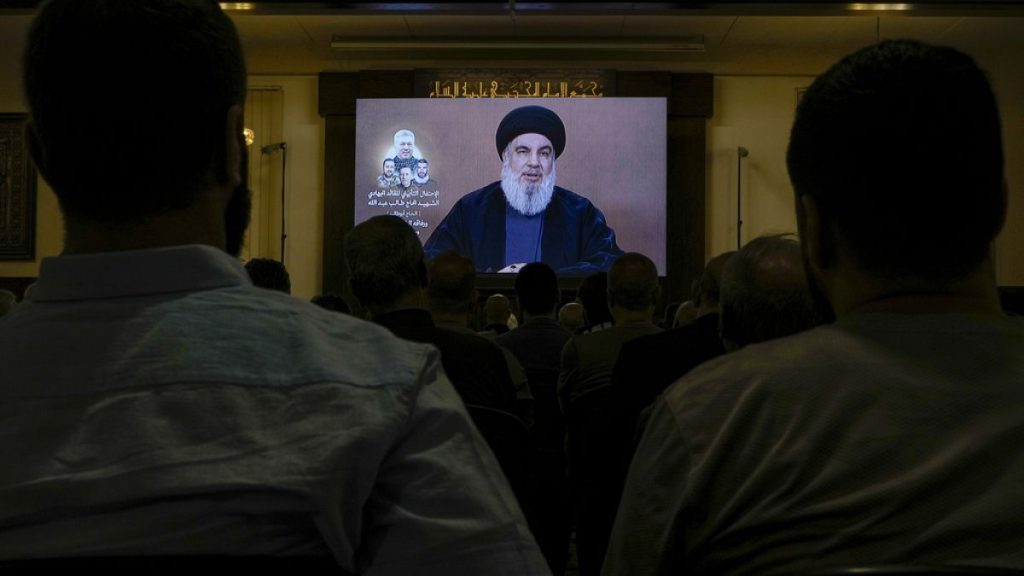Hezbollah leader Hassan Nasrallah recently issued warnings in a televised address about the potential for a direct conflict with Israel, stating that no Israeli territory would be spared in a full-scale war. While emphasizing that Hezbollah is not seeking total war, Nasrallah asserted that the group is fully prepared to engage in such a conflict if provoked. He also reiterated Hezbollah’s support for Hamas amid escalating tensions, warning that any large-scale offensive by Israel would result in comprehensive attacks targeting Israeli gas rigs in the Mediterranean. Nasrallah also accused Cyprus of aiding Israel by providing logistical support through its airports and bases, threatening that any cooperation with Israel would make Cyprus a part of the conflict and subject to retaliation.
In response to Nasrallah’s warnings, Cyprus denied the allegations of aiding Israel, with President Nikos Christodoulides affirming that the country is not involved in any military operations and is recognized for its humanitarian efforts, including the Cyprus-Gaza maritime corridor. Nasrallah also highlighted Hezbollah’s technological advancements, boasting of extensive reconnaissance capabilities over Israeli territory. He claimed that Hezbollah’s drones have gathered hours of footage of sensitive military sites, indicating that these sites are within Hezbollah’s reach for potential attacks. The situation around the Israeli-Lebanese border and the wider Middle East remains extremely tense, with Israel’s military preparing for various broader conflict scenarios.
Nasrallah’s warnings come in the context of escalating tensions between Hezbollah and Israel, with recent incidents such as the killing of senior Hezbollah commander Taleb Abdullah in an Israeli airstrike serving to heighten hostilities. Nasrallah’s threats of comprehensive attacks on Israeli territory and gas rigs reflect the group’s determination to defend itself against any Israeli aggression, even as he insists that Hezbollah is not seeking a full-scale war. The accusations against Cyprus for aiding Israel further underscore the complexity and regional implications of the conflict, potentially drawing additional parties into the confrontation.
As the situation continues to evolve, there is a growing concern about the potential for a broader conflict in the region, with the risk of a direct confrontation between Hezbollah and Israel looming large. Nasrallah’s warnings and accusations reflect a deeply entrenched animosity between the two adversaries, with both sides making preparations for potential escalation. The involvement of other regional actors, such as Cyprus, adds another dimension to the conflict, raising the stakes and increasing the likelihood of a wider regional conflict. In this volatile environment, diplomatic efforts to de-escalate tensions and prevent a full-scale conflict are essential to avoid further bloodshed and instability in the Middle East.


